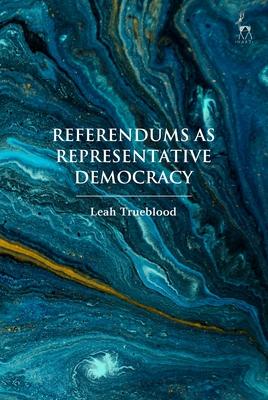
The book challenges the current treatment of referendums in processes of constitutional change both in the UK and around the world. It argues that referendums have been used under the banner of popular sovereignty in a way that undermines representative institutions. This book makes the case for the use of referendums stronger by showing how they can support, rather than undermine, institutions of representative democracy.
Understanding referendums as exercises in representative democracy has broader implications for constitutional democracy as well. Rather than see the power to constitute constitutions as something that happens occasionally in exceptional moments through referendums, this book argues instead that voters constantly have the power to constitute and reconstitute their constitutions.
The book challenges the current treatment of referendums in processes of constitutional change both in the UK and around the world. It argues that referendums have been used under the banner of popular sovereignty in a way that undermines representative institutions. This book makes the case for the use of referendums stronger by showing how they can support, rather than undermine, institutions of representative democracy.
Understanding referendums as exercises in representative democracy has broader implications for constitutional democracy as well. Rather than see the power to constitute constitutions as something that happens occasionally in exceptional moments through referendums, this book argues instead that voters constantly have the power to constitute and reconstitute their constitutions.
Hardcover
$127.78